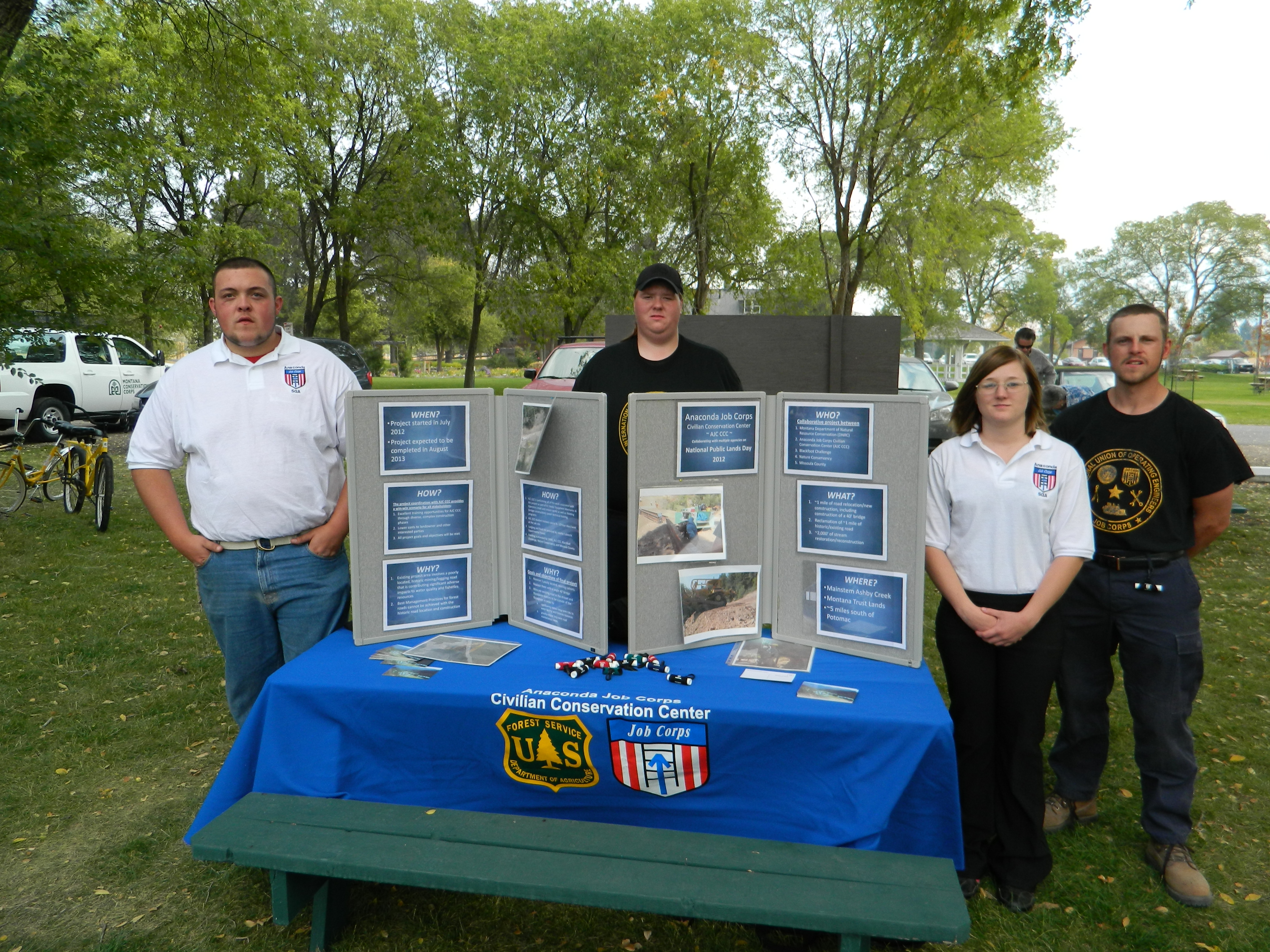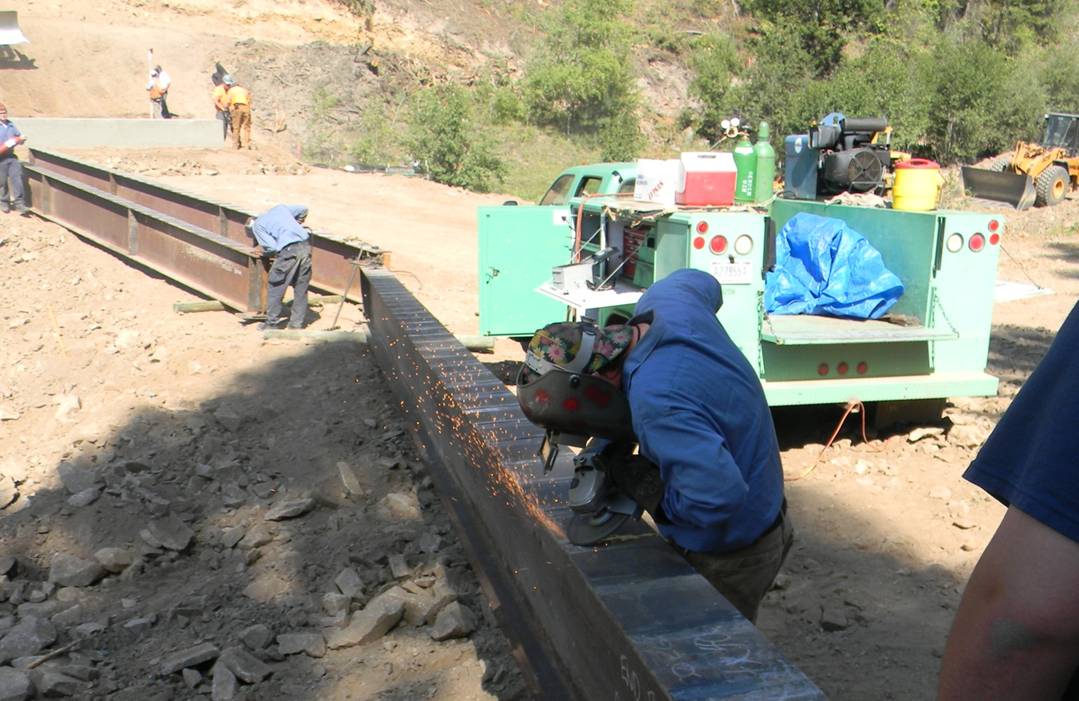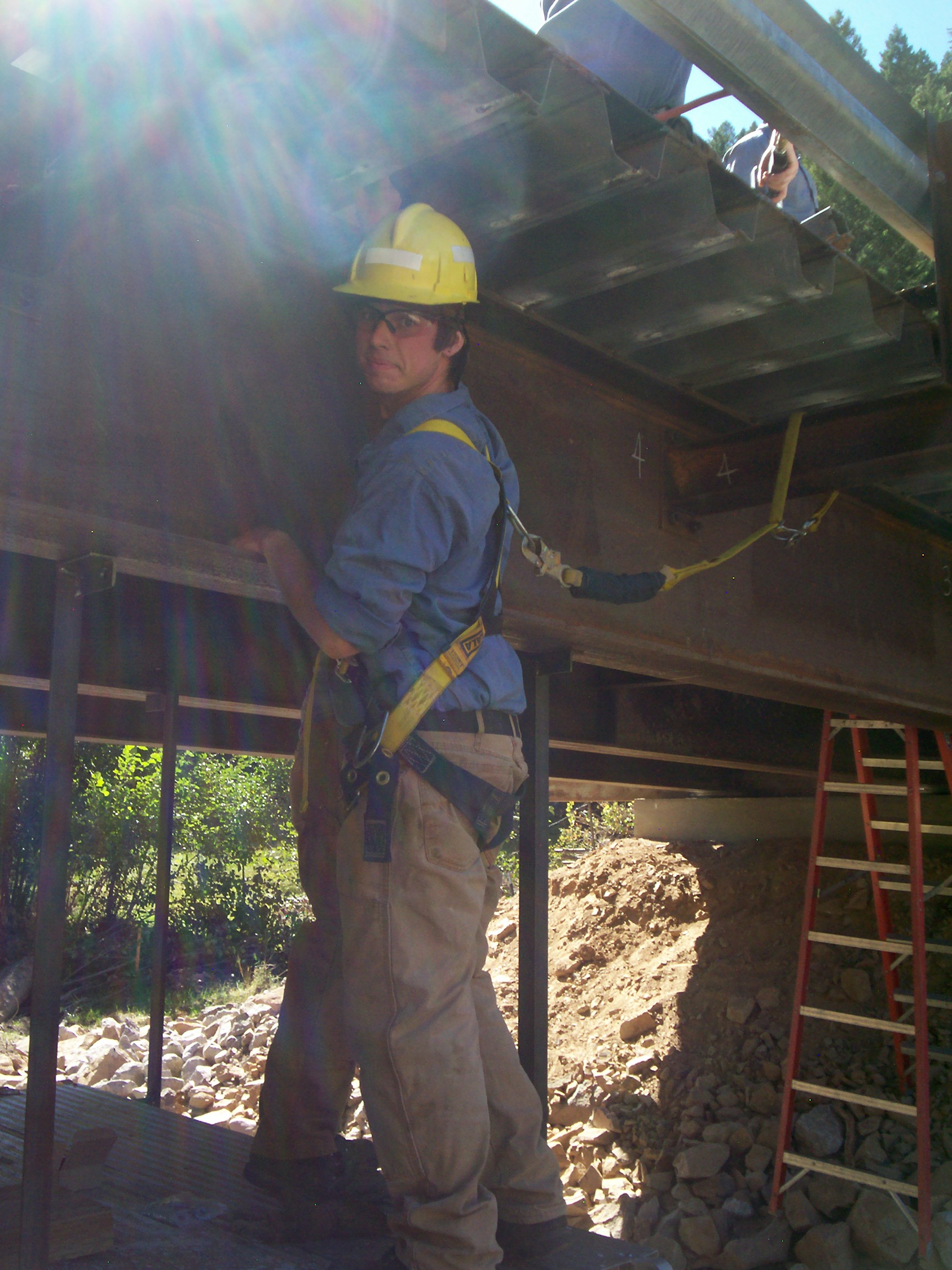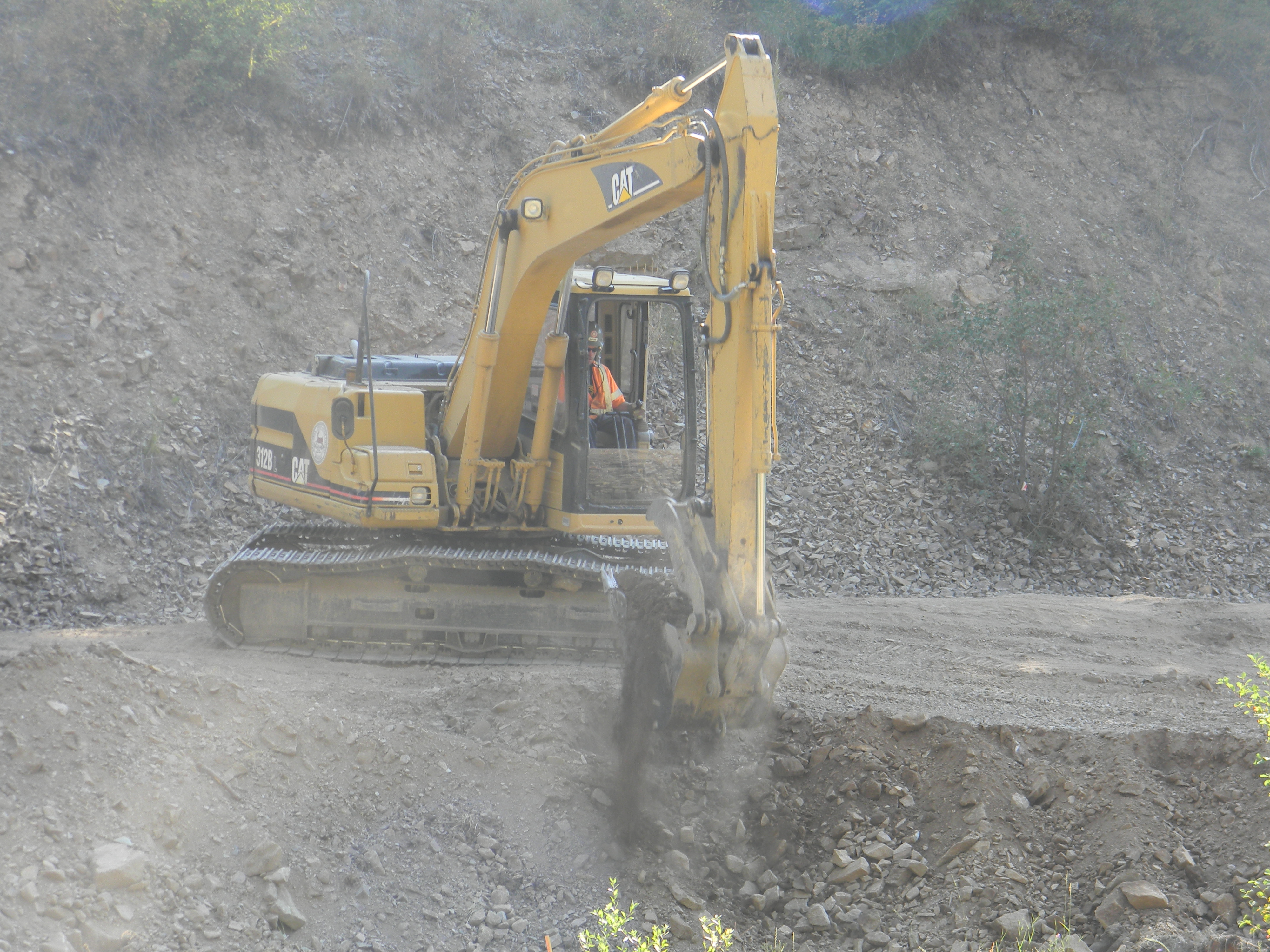Missoula, MT–Anaconda Job Corps Civilian Conservation Center (JCCCC) students participated as direct descendants of the original Civilian Conservation Corps (CCC) in a celebration of honor, volunteerism, the outdoors and National Public Lands Day (NPLD).
Anaconda JCCCC students occupy a booth displaying information about the Ashby Creek Project they’ve been working on this summer. Since July of this year students trainees in the heavy equipment operating and welding trades have been assisting with the road improvements and bridge replacement which are projected to be complete by Fall of next year. Pictured L to R: Ryan Crossley, welder; Andrew Glodowski, operator; Jordana Blalock, welder; and Jacob Olson, operator

Anaconda JCCCC student trainees stand among CCC alumni, Montana Conservation Corps (MCC) representatives, and a number of public who came together at Fort Missoula Regional Park or Milltown Sate Park to volunteer as part of NPLD.
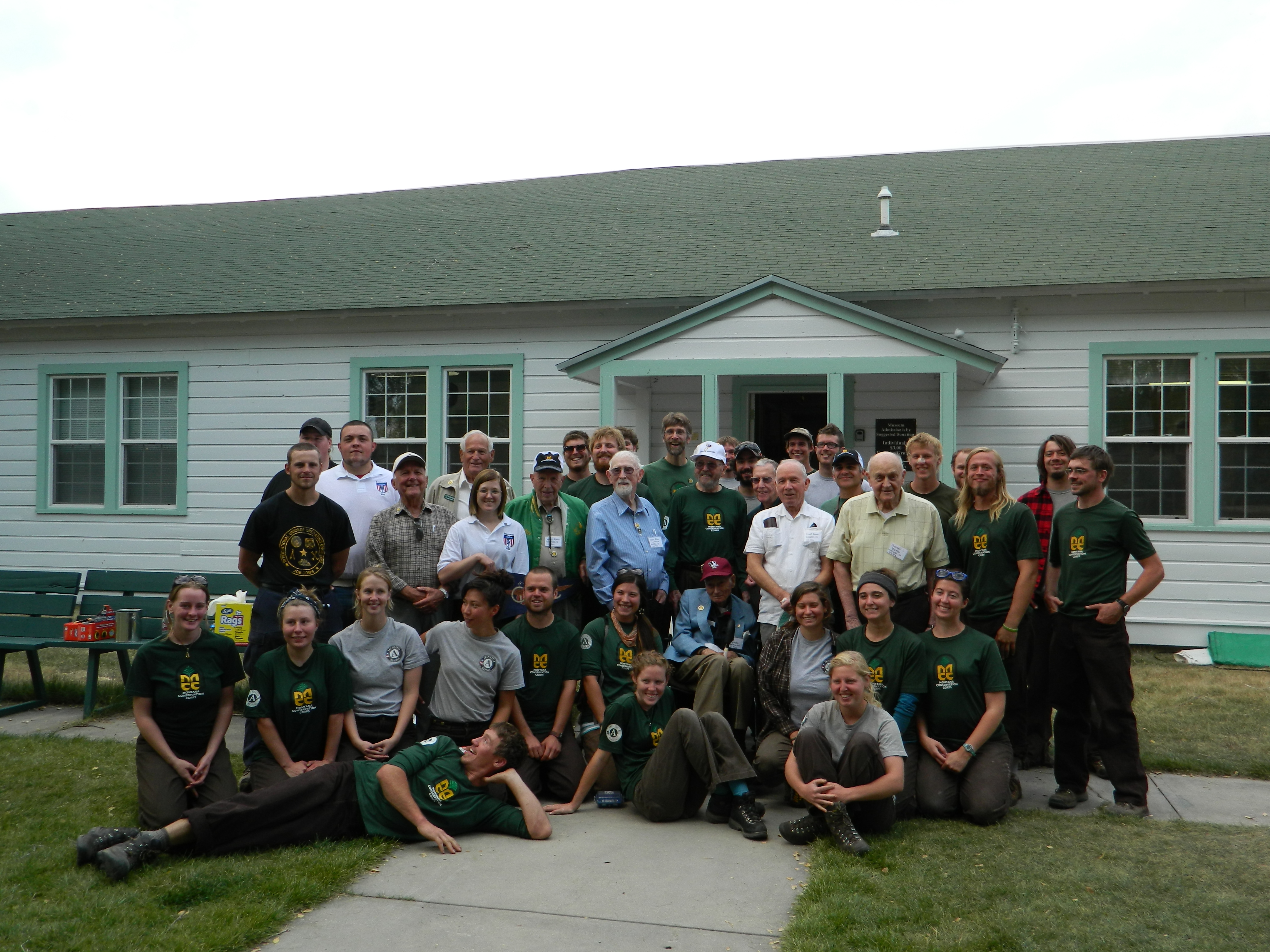
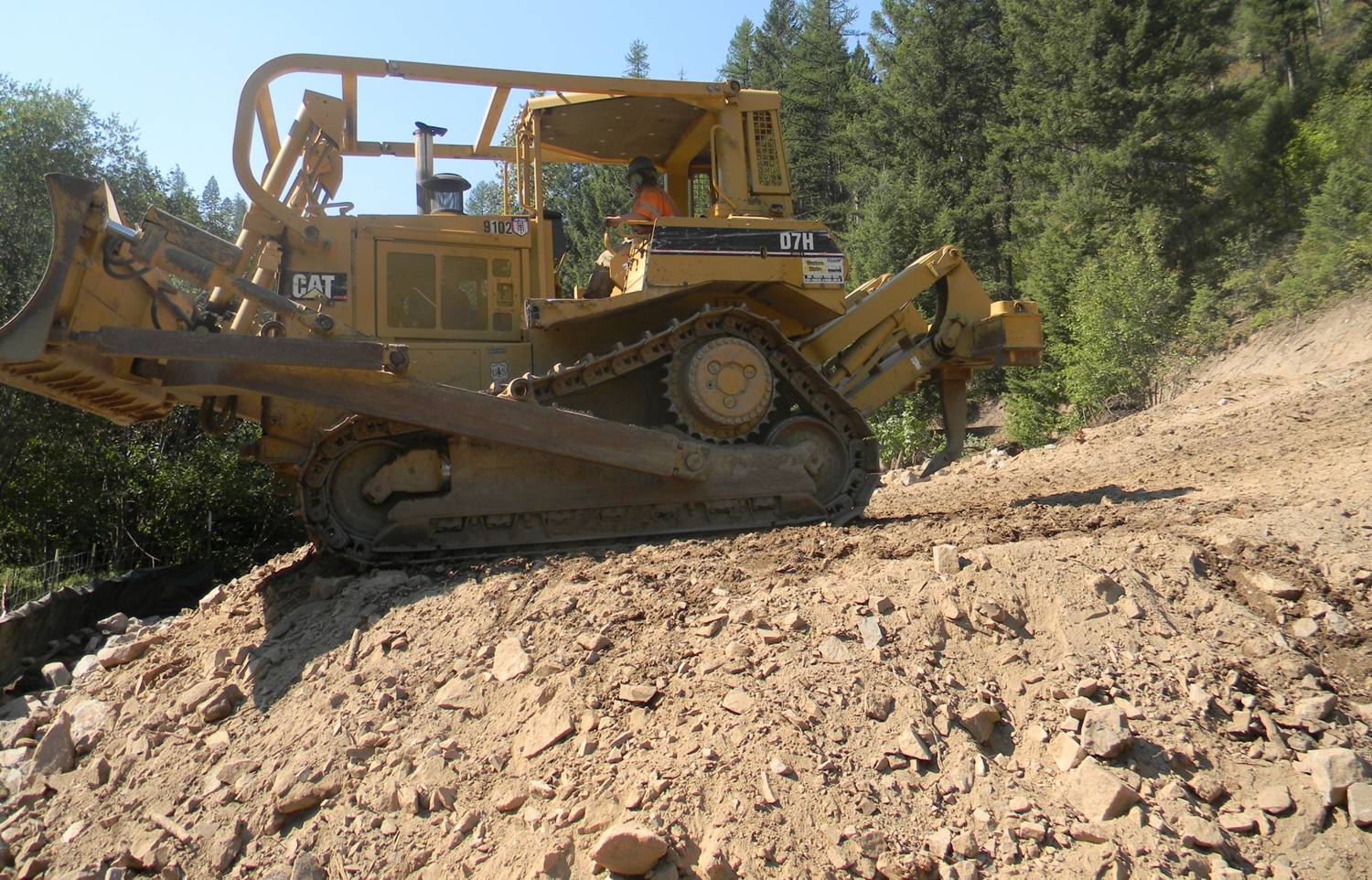
Anaconda JCCCC heavy equipment operator and welding student trainees are pictured above working on relocating and constructing approximately one mile of road and constructing a 40’ bridge.
Anaconda JCCCC equipment, supplies, and personnel pictured above in an aerial view of the Ashby Creek Project area that lies in Mainstem Ashby Creek, on Montana Trust Lands, approximately 5 miles south of Potomac.
Montana Department of Natural Resource Conservation (DNRC), Anaconda JCCCC, Blackfoot Challenge, Nature Conservancy, and Missoula County are employing best management practices for forest roads by 1.) Removing 3 poorly located, existing culverts, 2.) Replacing them with a single 40’ bridge, and 3.) Relocating existing road in the stream and floodplain bottom to be outside of the floodplain in order to a.) significantly reduce long-term risks to water quality and fisheries resources and b.) greatly reduce long-term road maintenance needs.


 JOB CORPS
JOB CORPS 